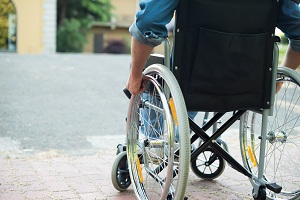eHEALTH Bureau

Royal Philips Electronics, of the Netherlands is a diversified health and well-being company, has supported a research project that shows heart failure patients who used an interactive tele-health system with motivational support tools at home spent less time in hospital and felt their quality of life had significantly improved over 12 months uation period. The final results of the CARME (CAtalan Remote Management uation) study, which was conducted at the Spanish Hospital Germans Trias i Pujol, presented at the European Society of Cardiology’s Heart Failure Congress 2010 in Berlin.
The study monitored 92 patients with severe heart failure at home, managed by the Hospital Germans Trias i Pujol Heart Failure Clinic. The interactive tele-health system Philips Motiva was used to connect patients to their healthcare providers via their home television and a broadband internet connection. Patients can take vital measurements in their homes and communicate the information to their physician via the system, and they can also receive educational and motivational information from their physician to help manage their health.
The final data from the CARME study show a significant clinical benefit in using Philips Motiva to monitor heart failure patients in the home, by comparing clinical outcomes 12 months prior to enrollment with the results obtained during the observation period. Results of the study showed a decrease of 68% in heart failure related hospitalisations and a reduction of days spent in hospital by 73%. CARME also reveals that patients showed a continuous and significant improvement in their perception of quality of life over the 12 month observation period, an improvement that ranged from 62% to 72%.

A post-analysis of the results (not presented at the Congress) shows that, at the beginning of the study, more than half of the patients (56%) said that their quality of life was ‘medium’ or ‘low’; this number decreased to 22% at the end. Also, the number of patients that considered their quality of life to be ‘medium-high’ rose from 44% at the beginning of the study to 78% after one year, and more than one-quarter of respondents (28%) considered quality of life to be ‘almost excellent.’
In addition, satisfaction with the tele-monitoring system was high, specially in those patients who had vital measurements added to their educational and motivational tools. Up to 81% of these patients
wanted to keep the solution in addition to their regular care.
“The CARME study has shown that disseminating patient and disease specific information via the TV, through Philips Motiva, helps family members to gain a better understanding of how to effectively support their loved ones in coping with their disease,” said Dr. Josep Lupon, Head of the Heart Failure Unit and main researcher of the study.
Walter van Kuijen, General Manager Home Monitoring for Philips Home Healthcare Solutions said, “At Philips, we aim to simplify healthcare for patients and caregivers with meaningful solutions, and we continue to innovate in areas such as tele-health, which can help healthcare providers around the globe to better manage the growing population of patients with chronic disease.”
Be a part of Elets Collaborative Initiatives. Join Us for Upcoming Events and explore business opportunities. Like us on Facebook , connect with us on LinkedIn and follow us on Twitter , Instagram.












